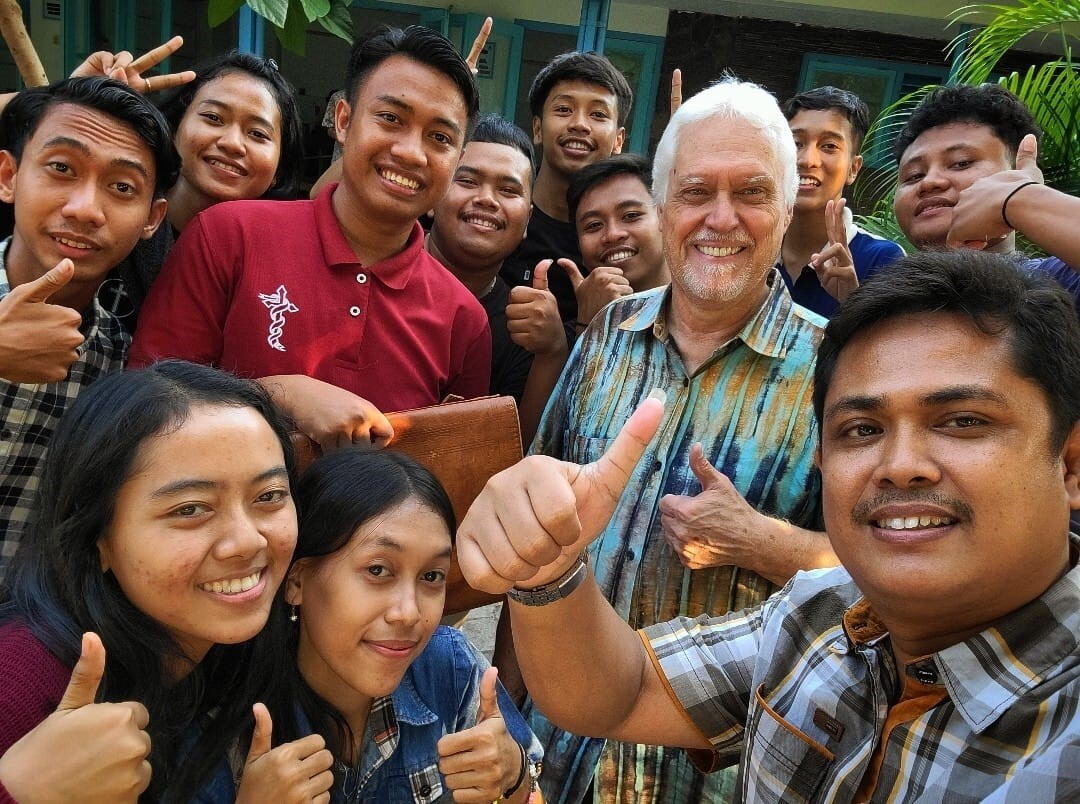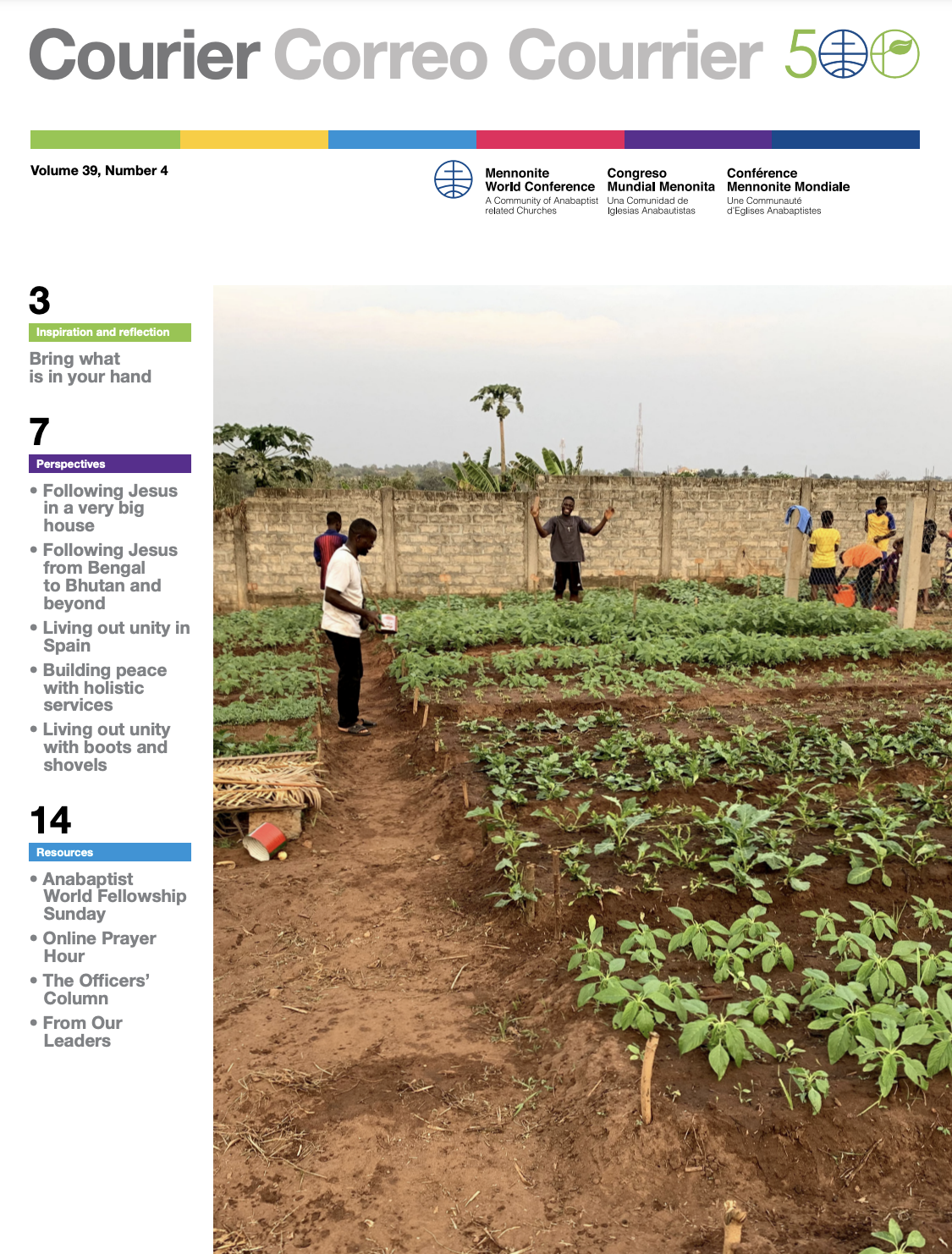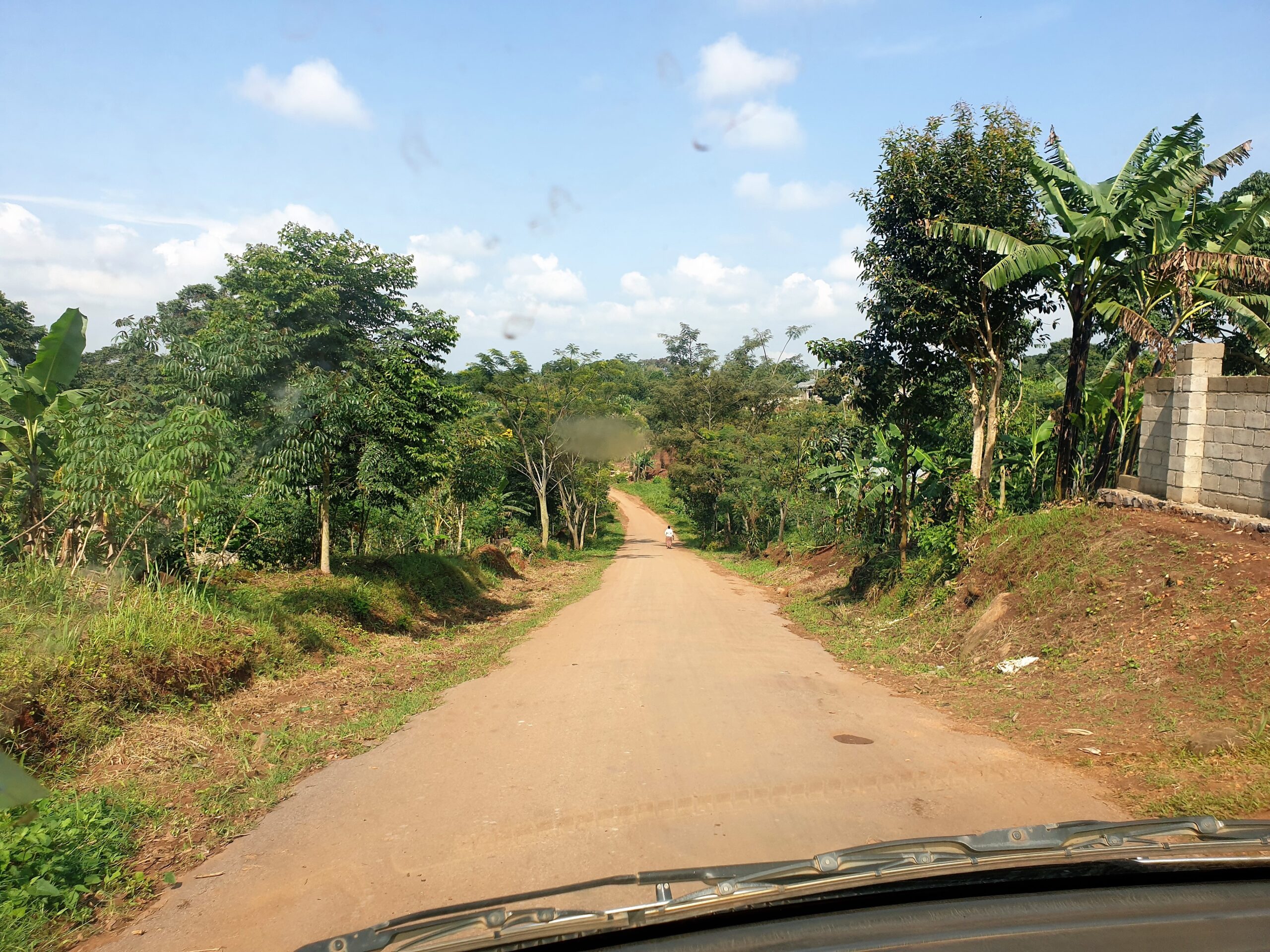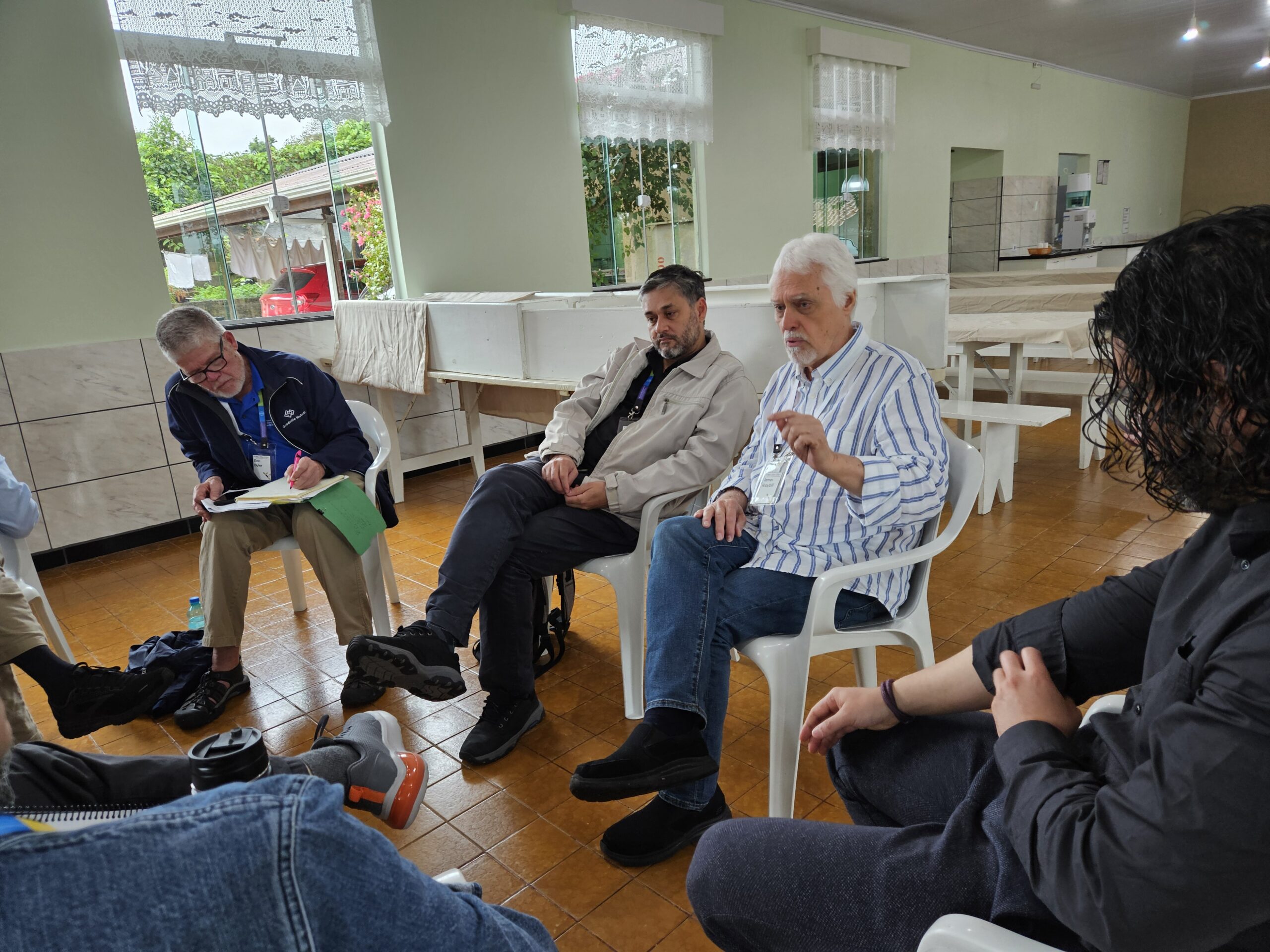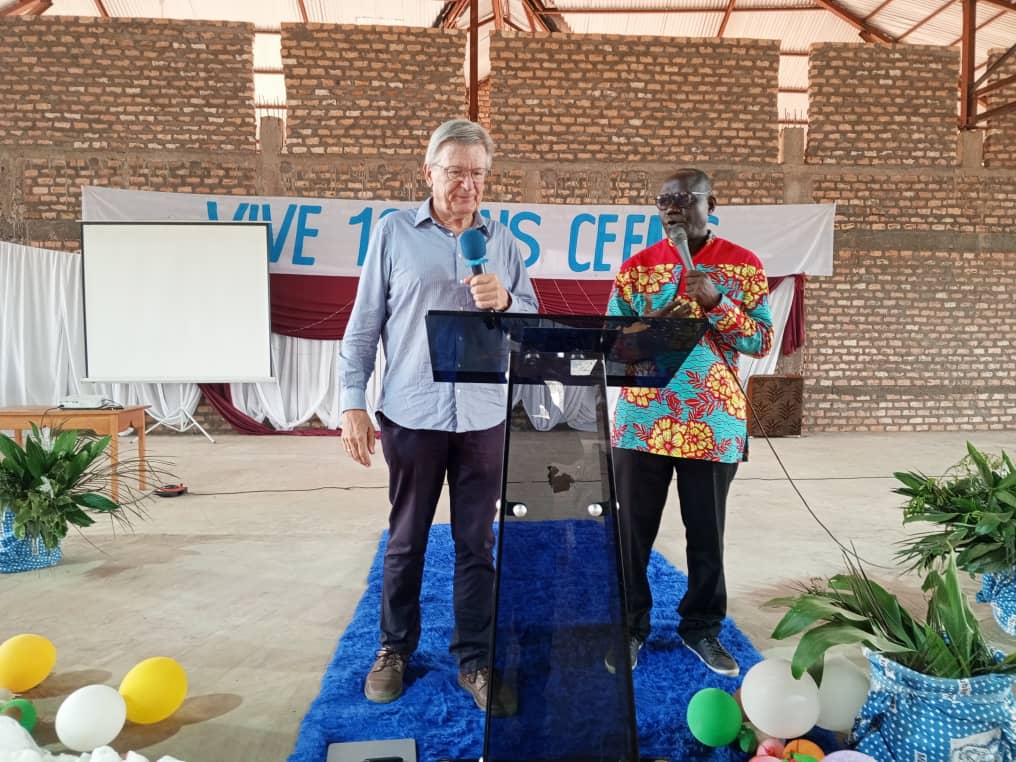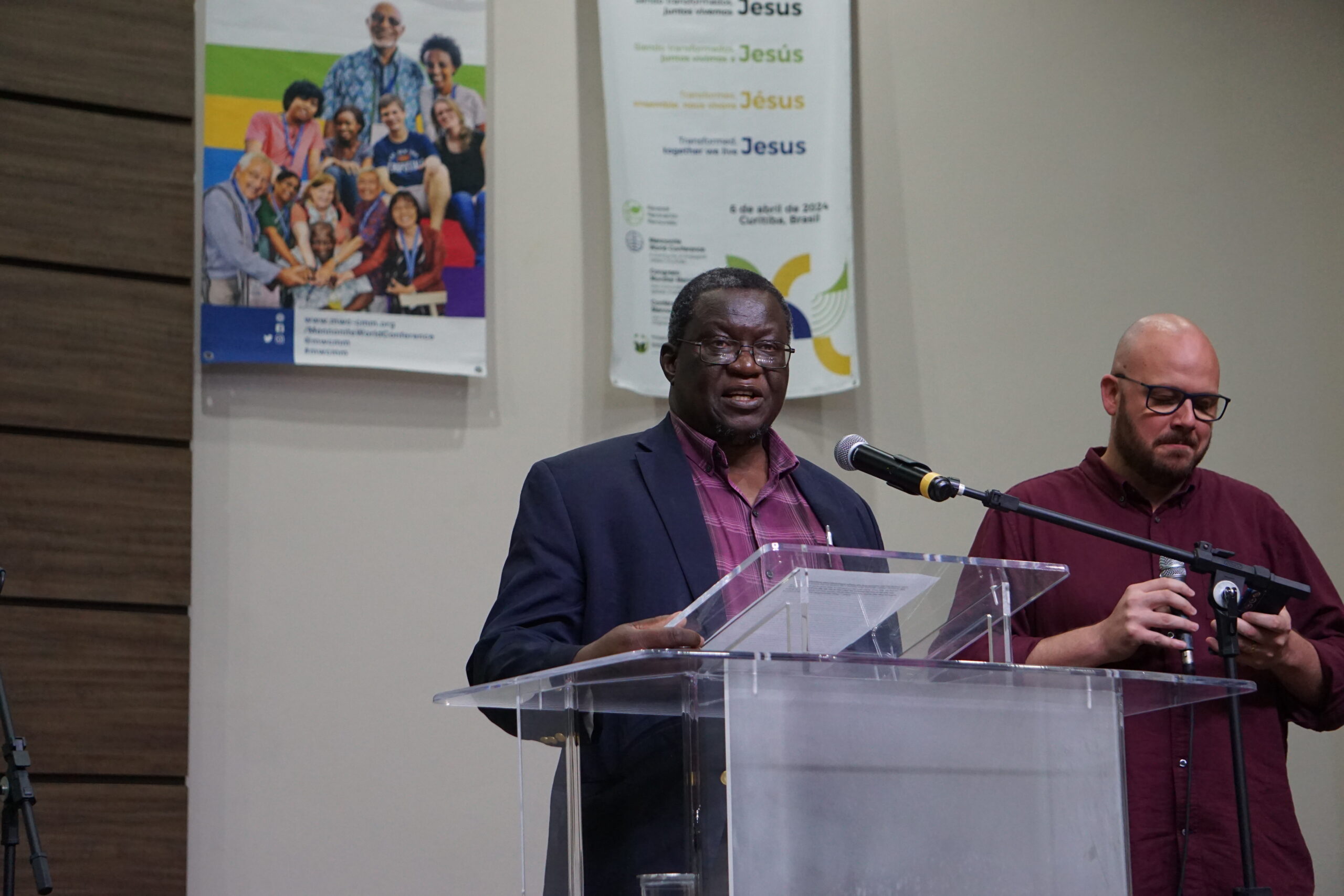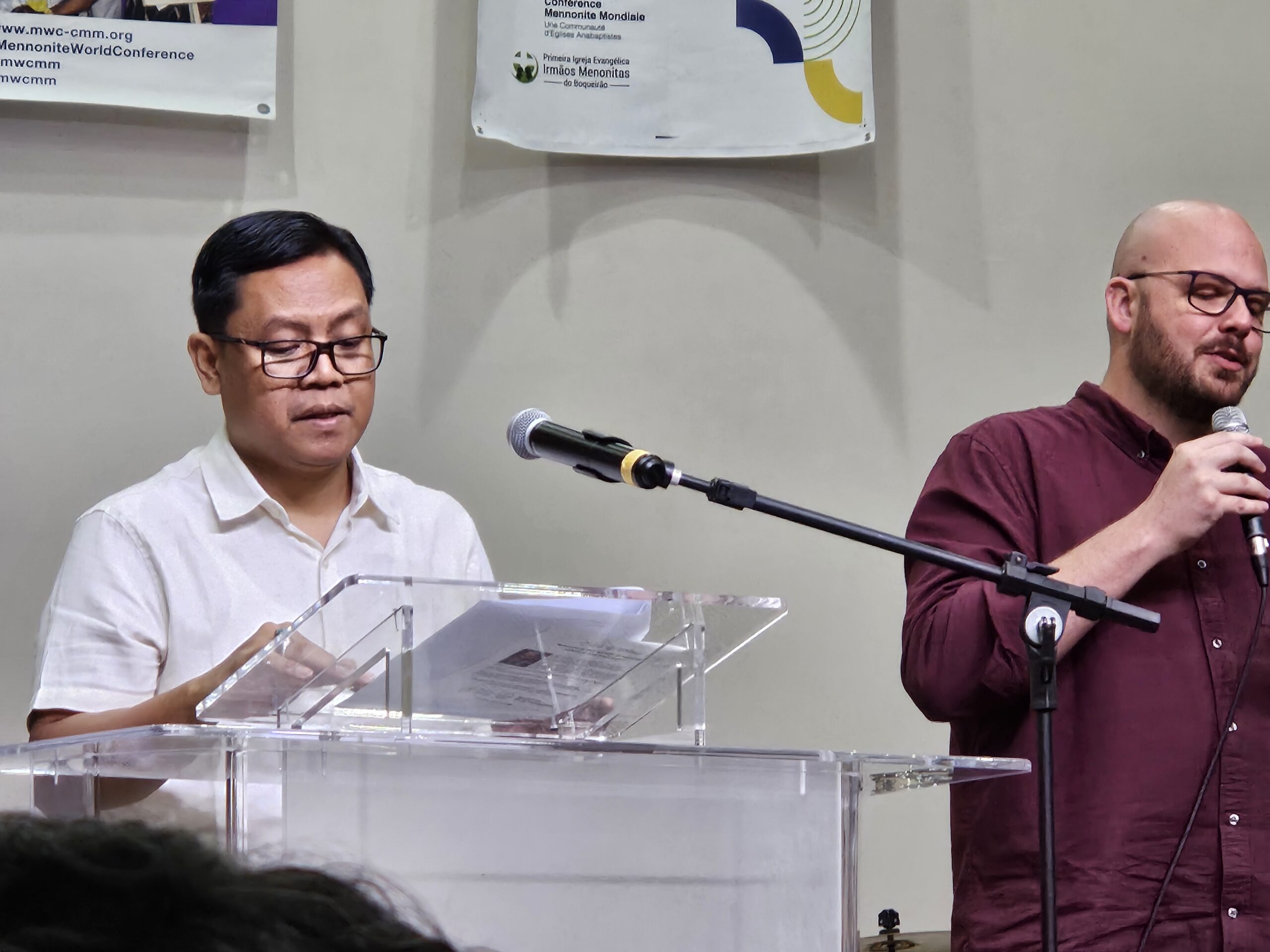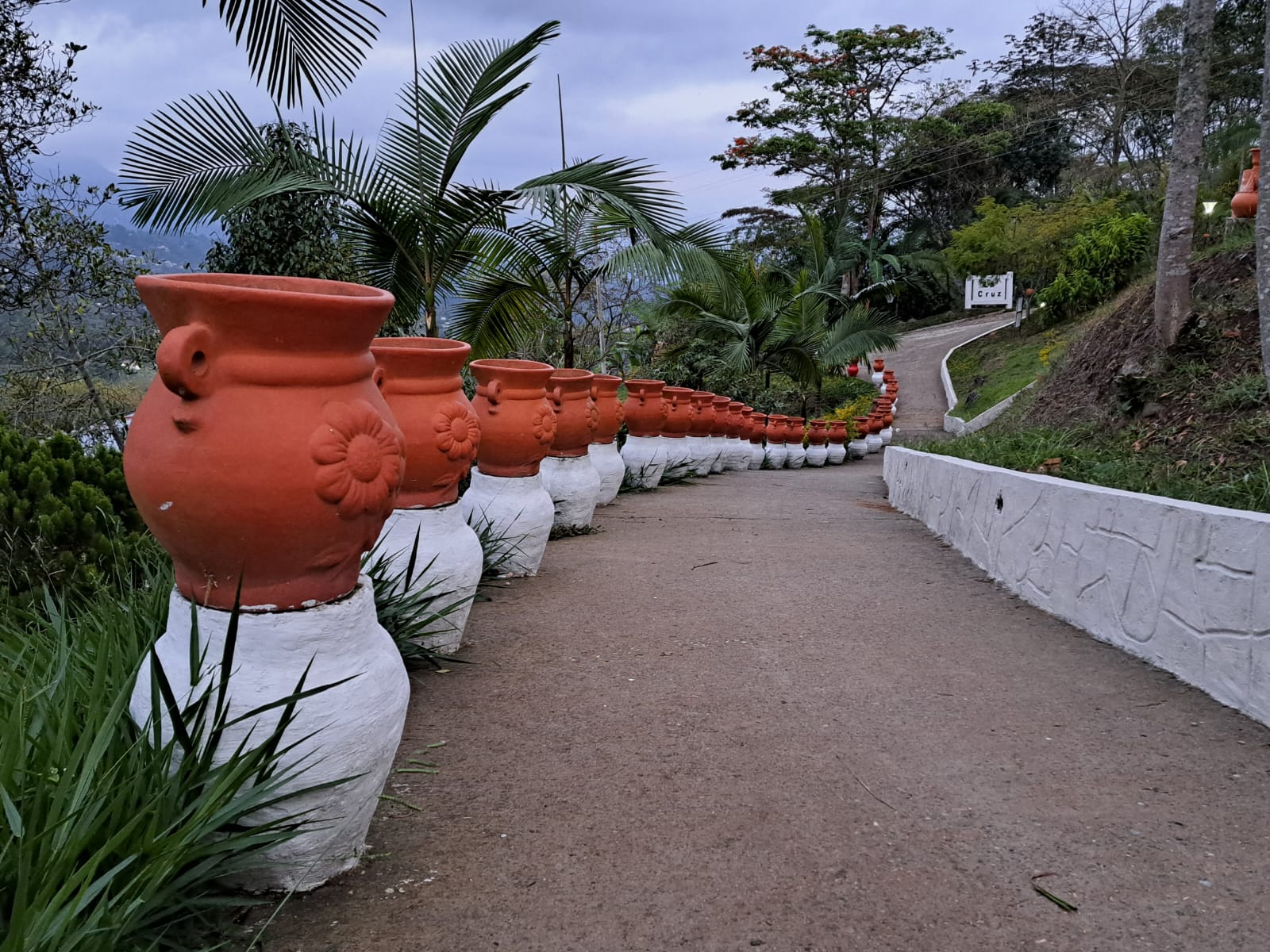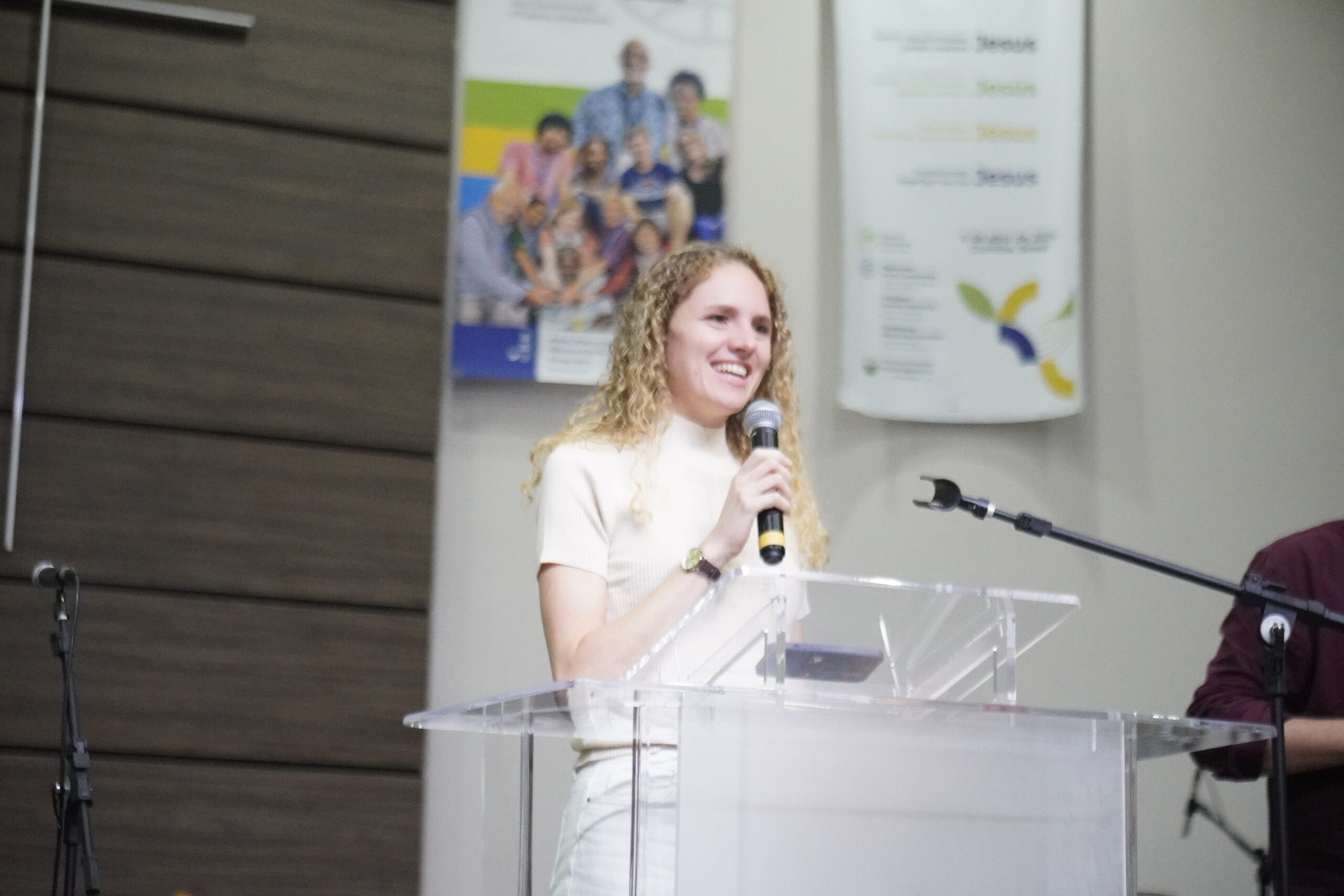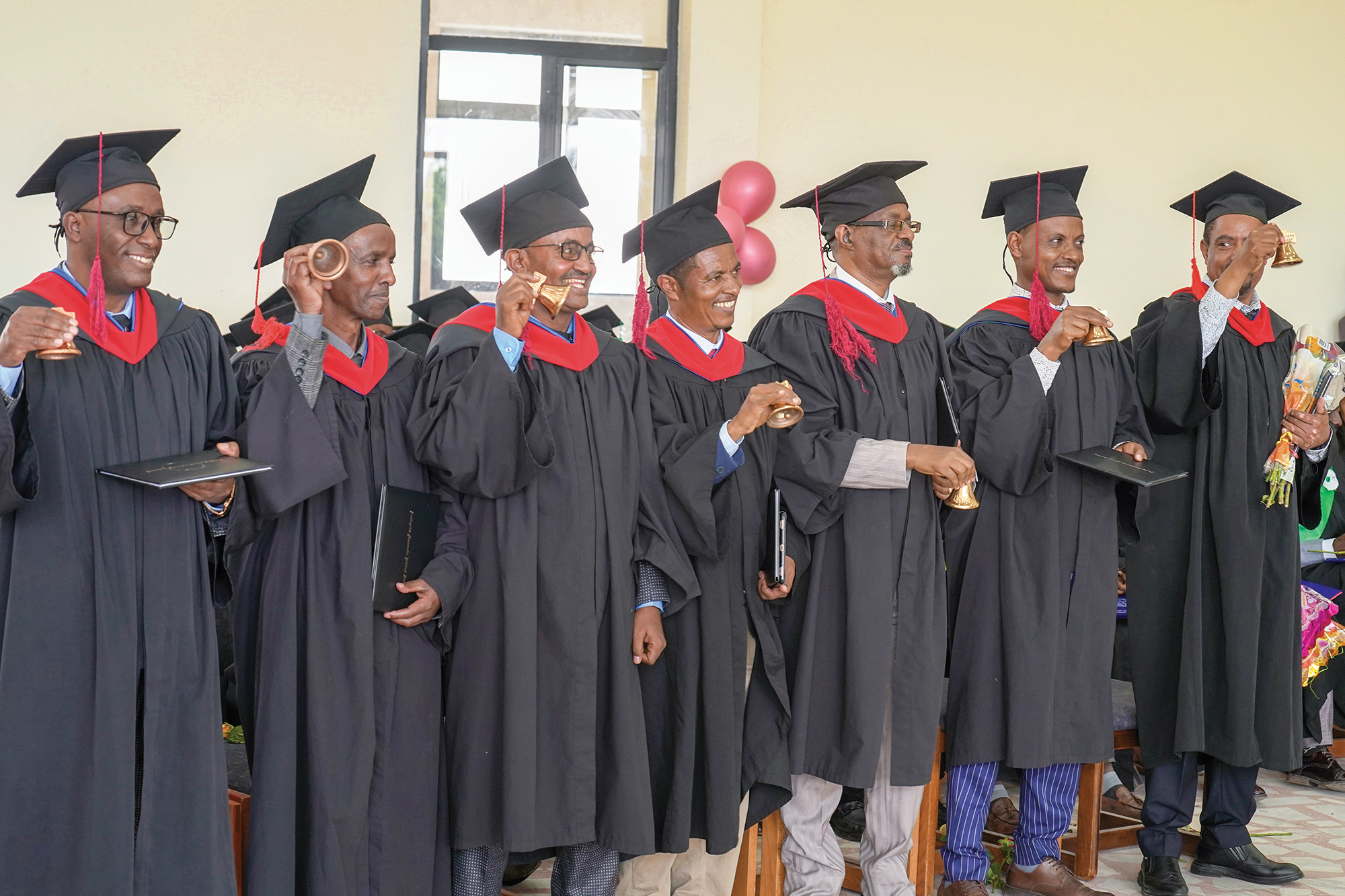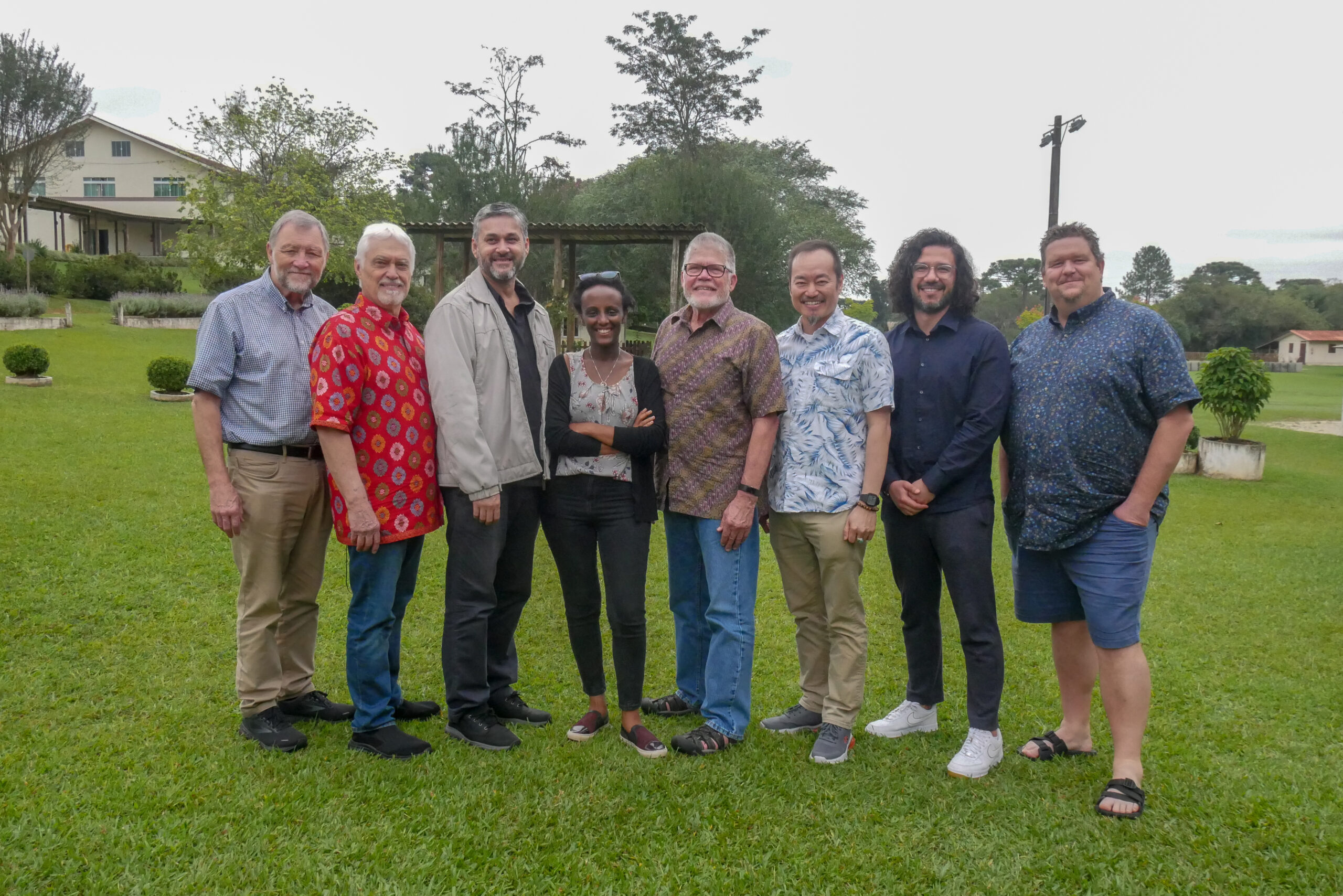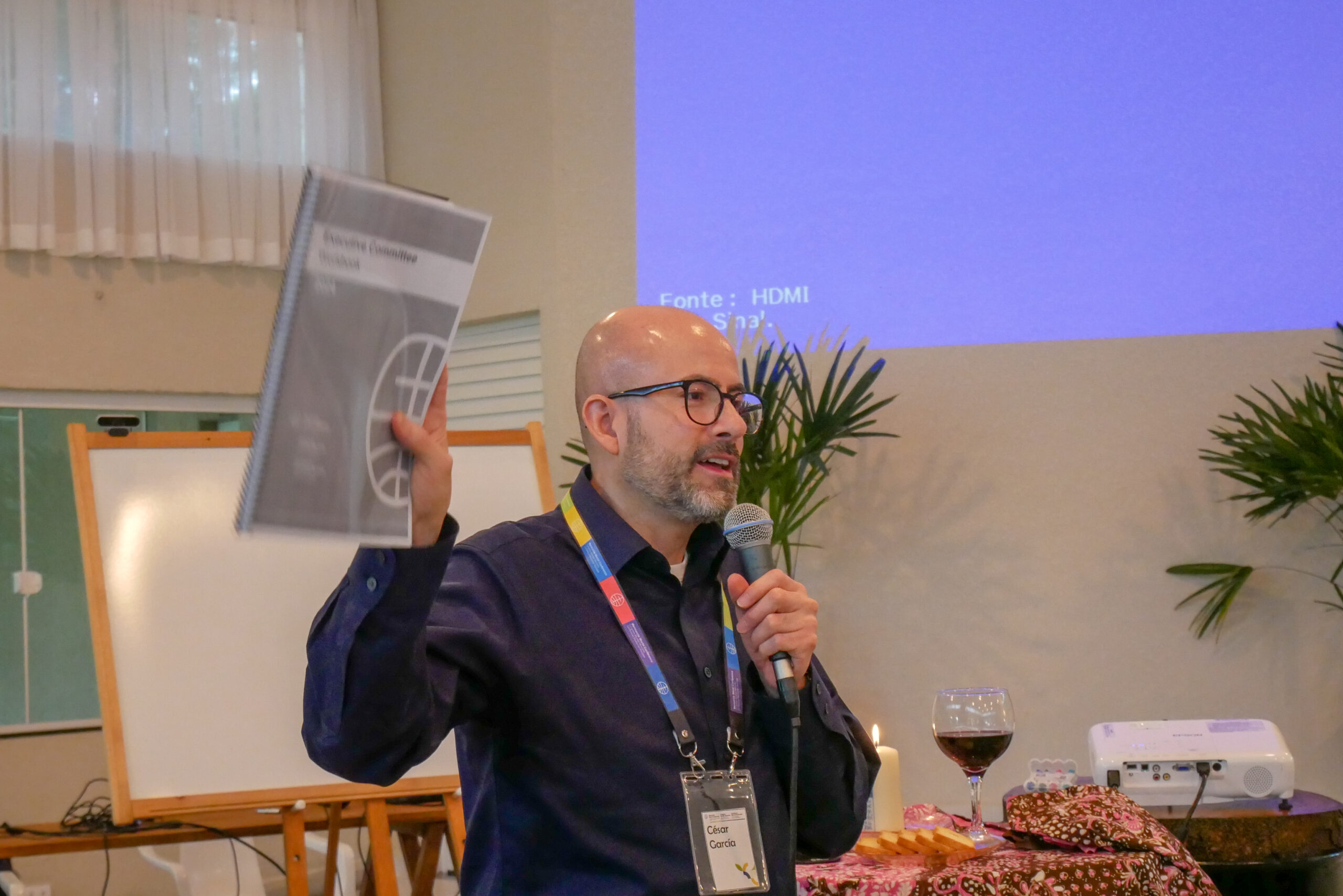-
A spirit of teamwork
James Krabill with students at STAKWW (Sekolah Tinggi Agama Kristen Wiyata) in Pati, Indonesia. About the Mission Commission The Mission Commission provides MWC member churches with resources and a forum for dialogue on global witness and service. The commission brings together the Global Anabaptist Service Network (GASN) and the Global Mission Fellowship (GMF) and enables
-
Courier 2024 / 39.4
A foretaste of the kingdom “Let’s think as citizens of a new nation in which there is not a gap between rich and poor, but where economic equality exists between all people. “Let’s think as citizens of a new nation in which there is not racial discrimination, but where cultural diversity is affirmed and celebrated.
-
The road and the destination
“If you don’t know where you’re going, any road will take you there.” This saying summarizes one of the ideas from Lewis Carroll’s classic children’s tale, Alice in Wonderland. Having a road and defining your destination is crucial if you want to arrive there. There is a biblical version of that saying in Proverbs 11:14:
-
Bring what is in your hand
The church as the body of Christ is central in God’s activity of reconciliation in the world. We want to embody this idea in our global structure. Mennonite World Conference (MWC) is an organic community and not a bureaucratic institution. As a global church, we are committed to serving people rather than building an infrastructure
-
We are one
Evangelism rallies, energetic music and dancing all day; witnessing, altar calls with a dozen respondents. Praying is loud, through tears or joy. You can feel the enthusiasm. I was heartily welcomed by the Mennonite Brethren church in DR Congo to celebrate their 100th anniversary in August 2024. The multiday event was held in a big
-
The power of God at a funeral wake
Africa One of the events that bring people together among our people are funeral wakes and funerals. Sometime last year, we had one of our church leaders have his wife taken to be with the Lord. It was a challenging time not only to the man, his family and the church, but the community as
-
Discipleship in the family
Indonesia My wife and I have pastored together for 25 years at a church in downtown Jakarta with a congregation of around 250 people. We really enjoy our ministry’s call to grow together with the congregation we pastor. We have one daughter who is now in her sixth semester of medical school preparing to become
-
The gospel without walls
Colombia Called and chosen for God’s purpose on earth. Where there is vision there is provision. When the intention is to bring heaven to earth, it has God’s full support. Thirty-three years ago, we heard a call for evangelism and church growth. We began to participate in the Mennonite congregation in our home town Anolaima.
-
A rich and satisfying life
Uruguay In these last few years that I’ve been involved with Mennonite World Conference and particularly the Young AnaBaptists (or YABs) it has been awesome to connect with people from around the world and be enriched by their perspectives and ways of living their faith. This has opened my eyes and shown me Jesus in
-
AMBS-MWC collaboration forms leaders for the global church
ELKHART, Indiana (Anabaptist Mennonite Biblical Seminary) — A collaboration formalized in 2020 between Mennonite World Conference (MWC) and Anabaptist Mennonite Biblical Seminary (AMBS) in Elkhart, Indiana, USA, is opening doors for people across the world to gain Anabaptist pastoral and leadership education. Through existing programs and new initiatives, pastors and church leaders are taking
-
The unity of the Spirit
About the Faith & Life Commission Anabaptist churches around the world live their faith diversely, addressing local challenges and opportunities while adhering to Shared Convictions. The Faith & Life Commission enables MWC member churches to receive and provide counsel on Christian faith and practice, as well as on Anabaptist witness in the world today. This
-
Continuous movement and a contrite heart
“Do not be conformed to this age, but be transformed by the renewing of the mind so that you may discern what is the will of God, what is good and acceptable and perfect.” Romans 12:2 (NRSVUE). Renewal is the name that Mennonite World Conference has given to a decade of regional events around the
